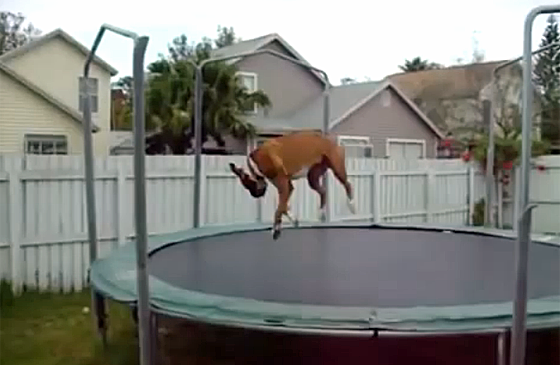
Dr. Marty Becker’s Tips for Fear-Free Pets
The author and veterinarian offers advice for helping your furry friend avoid fear and anxiety.
View Transcript
Hi Guideposts. I’m Dr. Marty Becker, here with my wing dog, QT Pi, at Almost Heaven Ranch. I’ve been a practicing veterinarian for over 40 years and a lifetime pet lover. I wrote some books called “Chicken Soup for the Soul” about that affectionate connection between people and their pets. That led to an appearance on Good Morning America to promote the book. That led to 17 years on Good Morning America and then being on Dr. Oz and then 23 books and lastly a syndicated column. But I still practice at North Idaho Animal Hospital in Sandpoint, Idaho.
Really delighted to be part of Fear Free, which we look to really take the “pet” out of petrified in all situations, whether it’s going to the veterinary practice, going to see the groomer, going to be boarded. We know that pets have rich emotions just like humans do, so we want pets to not just be physically healthy but emotionally healthy as well.
What can a pet parent do to make a veterinary visit fear-free? The worst thing any pet parent feels is like they’re hurting their pet by trying to help it. It’s sick, it’s injured. You need their teeth cleaned. You need their vaccinations and you think, “It’s so stressful for them. Maybe I’ll just wait.”
The veterinarian is the true pet health expert and there’s no substitute for regular veterinary visits, either for wellness or the first signs of an illness or first moments of an accident. So that’s why you need to go with a veterinarian that’s trained in Fear Free. And in Fear Free, when we go to do a procedure, like we’re giving a vaccination, we’re giving injection, antibiotics, we’re examining them, we’re doing a blood draw. We go very careful. We talk to them, we use a distraction technique.
So if I was going to examine a wound on QT Pi or give him a vaccine, we would actually have a little silicone mat with a little smiley face in Easy Cheese or peanut butter or whipped cream, and while he’s distracted licking this off, that’s when we would examine the wound or give the vaccination. Most of the time, they don’t even know something’s happened.
How can a pet parent alleviate anxiety in their pets? One thing is to desensitize them. And QT Pi here, he was a shelter dog, and we had to do exactly this with him. What usually triggers the separation anxiety, putting your coat on, the jingling of keys, going outside starting your car. So what you do is you put your coat on and then you take it back off. Then you give them a treat. You do your keys, you jingle your keys, you put them back. You go outside, you start your car up, you come back inside. So you desensitize them to those triggers.
Also there are pheromones, so there are some sick pheromones you can give a dog. So you put a plug-in of the pheromone in your house, or you can spritz their bedding with it. There are some nutraceuticals you can use; talk to your veterinarian about it. Some of these are products that mimic the milk that a mother gives their puppies. And then there’s pharmacy solutions.
What is the best way to distract a pet in a stressful situation? Number one, your emergency call is always “come”. Above anything else, you need to have a dog that’ll come to you. You may be out for a walk and there’s a big dog coming down the road. There’s a fire engine coming recklessly. So what I recommend on the word “come” is to have some treat that you give that they don’t get any time else. A good example would be warm deli turkey, little slices of hot dogs or something like that, so they know how to come.
So how do you help pets deal with loud noises? Let’s talk about thunderstorms first. For most dogs, they… Cats very seldom get thunderstorm phobias, But most dogs, they get a buildup of static electricity in their coat before they hear the rumbling of thunder, before they hear the flashes of light. And so if there’s thunderstorms in the forecast, you can take an unscented fabric softener sheet and just wipe it along the whole trunk of your dog’s body. And in about 30% of the dogs they won’t have a thunderstorm phobia just because they don’t get the buildup of static electricity.
QT Pi here is really freaked out by thunderstorms. So if there are thunderstorms in the forecast or let’s say it’s July 2nd, we either give him a product called Sileo, or we get generic xanax or alprazolam. And literally, if he’s on alprazolam, that thunder can hit right outside the house here and shake this whole house, and it does absolutely nothing except give him a very robust appetite. One other thing too, thundershirts work in about 60% of dogs. And how do those work? They’re a compression garment. All of us have seen a baby swaddled. Why do they swaddle a baby? It comforts them. And one more thing is pheromones. Again, pheromones are like a chilling mist. It works throughout a dog’s life.










